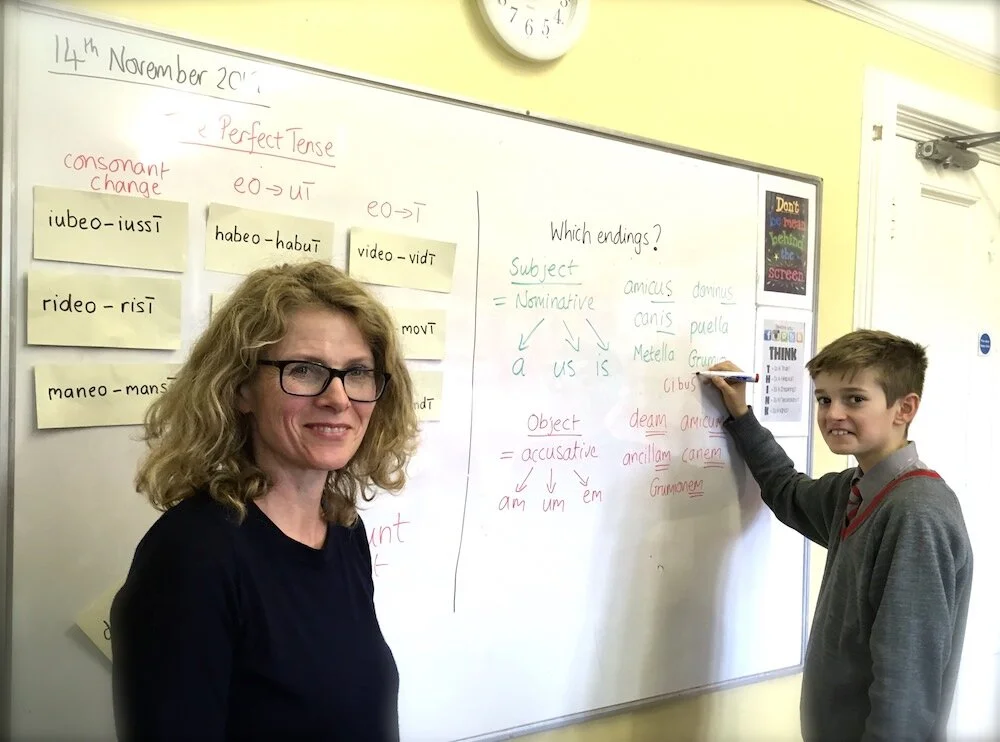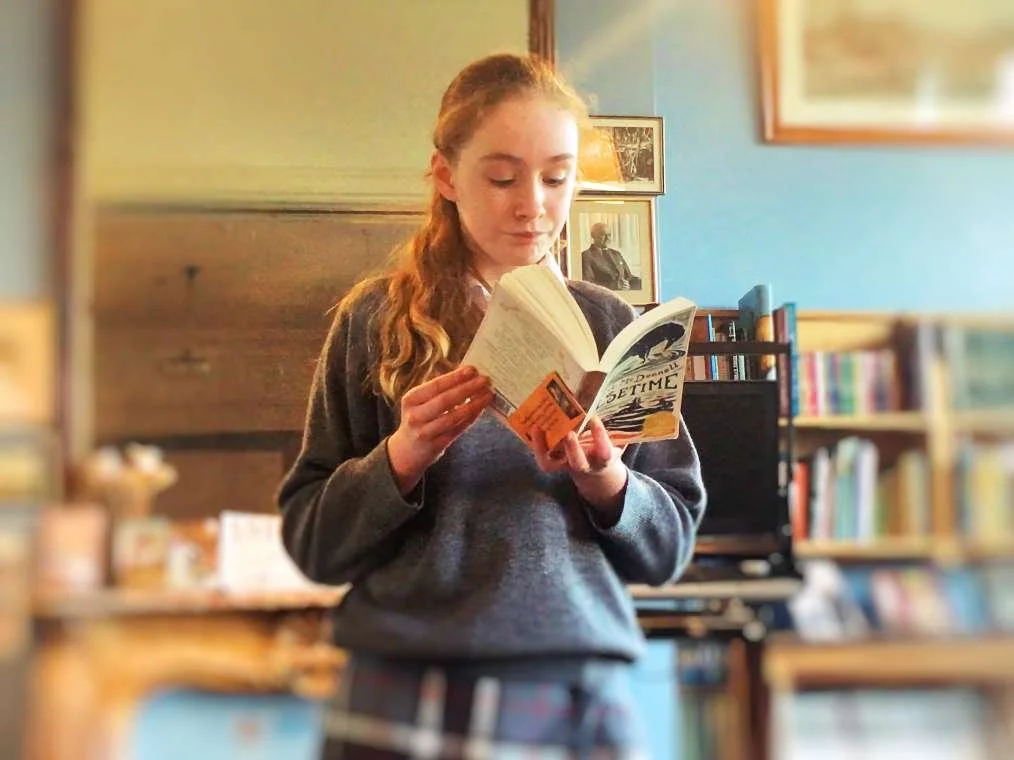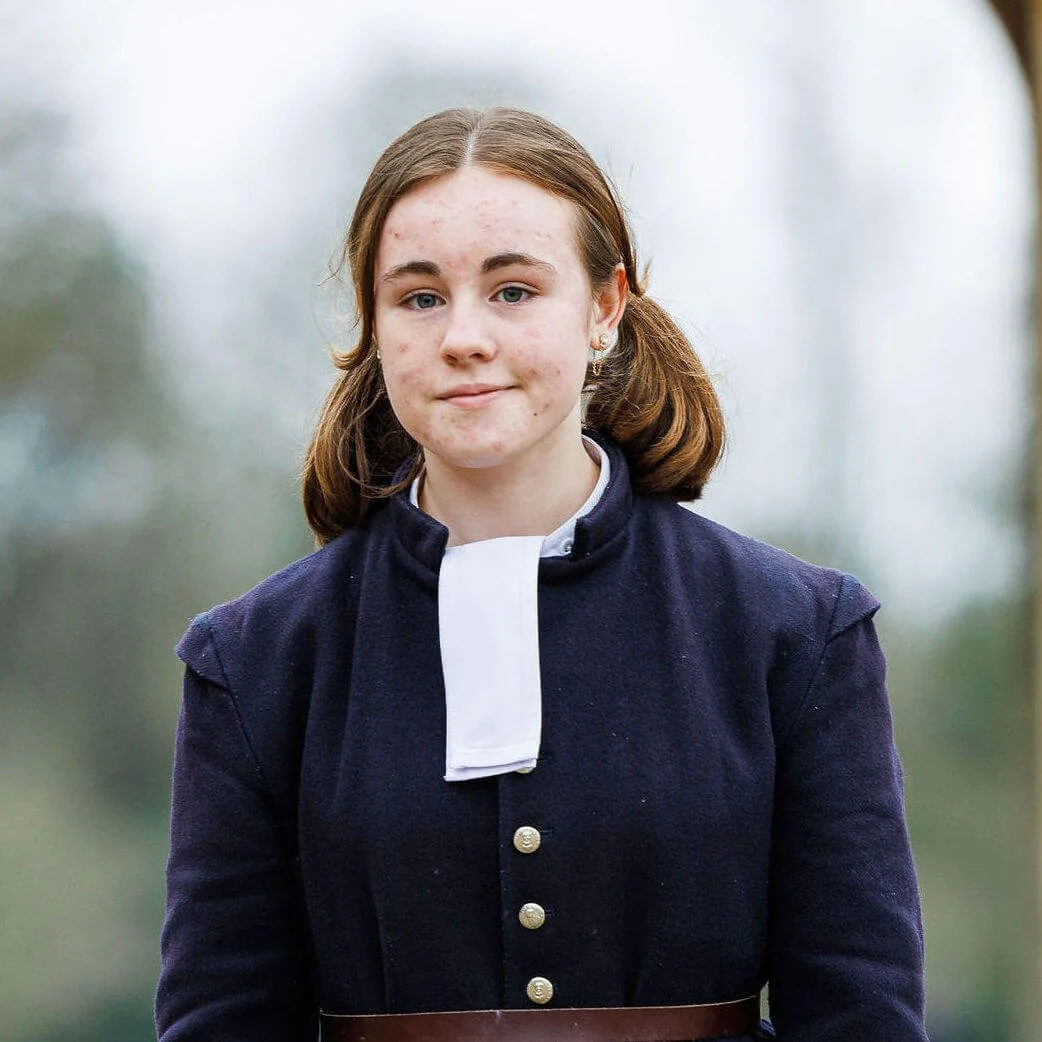Discover the Latin Curriculum at West Sussex independent school, Sompting Abbotts Preparatory School
Aims
It is school policy that all children study Latin in Years 6, 7 and 8 at Sompting Abbotts. On occasion, a child with a specific learning difficulty may, in an individual arrangement agreed between the Headmaster and the parents/guardians, be released from Latin for support in core subjects. Children who join the school without English as a first language are currently integrated in class, though with an IEP for this subject.
“There’s a substantial body of evidence that children who study Latin outperform their peers when it comes to reading, reading comprehension and vocabulary, as well as higher order thinking such as computation, concepts and problem solving. Unlike other languages, Latin isn’t just about conjugating verbs. It includes a crash course in ancient history and cosmology. Plus Latin has the advantage of being at the root of a whole host of European languages.”
Most of the senior schools which are the chosen destinations for our pupils after completing Year 8 with us offer Latin as an option for GCSE and A Level. We feel it's important that our pupils have the opportunity of learning Latin to receive the best grounding for their school of choice. Many pupils opt to continue with Latin and we find that many are placed in higher sets in their next schools. Even if Latin isn’t pursued at senior school, the linguistic and cultural concepts gained from its study are very useful for English, French, Spanish, Italian, German, History and Classical Civilisation.
An awareness of the derivation of words from Latin aids vocabulary acquisition and retention in English and French. The CE syllabus requires not only fluency in the translation, comprehension and grammar of Latin, but also background knowledge of Greek Myths and Legends, Roman History, the city of Rome and Roman Britain.
Approach
Latin is taught by our specialist Latin teacher, Ms Isobel Monaghan. The teaching of Latin is informed by the current practice in Modern/Foreign Languages, the aim being to draw on a variety of approaches to address the range of learning styles that Gardner’s theories of multiple intelligences suggest.
Lessons (single or double periods) vary in style: grammar is taught either by formal exposition or the inference of patterns through the analysis of selected examples. The majority of work is aimed at achieving an understanding of written Latin and demonstrating a comprehension of the basics of Latin syntax by translating into Latin. Work can be done as a whole class, a group, in pairs, or individually. Formal language work is interspersed with films and CDs on background topics. Use is made of the IT suite (and Chromebooks) which is equipped with the ISEB translation programme.
Display in classrooms provide support on model forms and illustrations of usage. The font used in created resources is Arial, a font recommended by the Institute of Dyslexia. Textbooks used are those recommended by the ISEB and published by them and Galore Park to help work towards Common Entrance and Scholarship.
It is required of all year 8 pupils that they have a copy of the ISEB Latin Word List and it is highly recommended that pupils aiming for Levels 2,3 and Scholarship acquire a copy of the ISEB Grammar Reference.
When it has been determined in which tier they will sit, a summary of the work to be covered for each level of the revised CE syllabus and a set of revision exercises created by Ms Monaghan covering the appropriate grammar and vocabulary specific to each level is given to all Year 8 pupils.
Post-Examination, pupils are encouraged to enter the Jowett Sendelar Essay Competition run by JACT (Joint Association of Classics Teachers). Support is given on the identification of revision resources.
What will my child study?
Year 5
Autumn Term: Mythological study- Greek Creation Myth, Olympian Gods and Goddesses, Areas of responsibility and symbols, Roman Equivalent names; Jason and the Golden Fleece; Theseus and the Minotaur; Perseus and Medusa
Spring Term: starting Junior Latin course “Minimus” for those who are able
Summer Term: Mythological study - The Trojan War, the Travels of Odysseus, The Labours of Hercules
Year 6
We use the So You Really Want To Learn Latin Prep, Book 1 by Theo Zinn for all in the Autumn Term, with accompanying Workbook 1A.
Depending on response to material, some pupils use Ab Initio 1 by Bob Bass fro the Spring Term onwards. Aiming to understand the basics of an inflected language, flexibility of word order and sentence analysis; working on gender of nouns, regularity and irregularity tense usage and the case system.
Pupils using Prep 1 study the first conjugation in two tenses, first declension adjectives, prepositions with accusative plus associated vocabulary.
Those using Ab Initio 1 study the present tense in four conjugations, the first and second declensions, the use of prepositions and adjectives, imperfect and perfect tenses.
Both groups get to study the history of early Rome in the Autumn Term and Pompeii in the Spring and Summer Terms.
Year 7
The class works in groups using Ab Initio, Latin Prep 1, or Cambridge Latin Course.
Ab Initio: the learning outcome for this group is a reinforcement of the basics of sentence structure. Work concentrates on the identification of parts of speech as this supports work in English and Modern Languages.
Prep 1: the learning outcomes aimed for this group are a more developed understanding of the use of the case system, more detailed sentence analysis, reading and producing tenses in 3 tenses in all conjugations, the third declension, translating and comprehending more complex and extended Latin texts. There will be revision of the major Greek Myths and Legends included in the CE syllabus, with the introduction of past paper questions to develop writing style and content.
Cambridge Latin Course: the learning outcomes for this group are an understanding of the life of a Roman town in the first century, the present tense, a limited use of cases and adjectives.
Year 8
Now, the Year group is divided into distinct classes: Scholarship, Common Entrance (CE) and Cambridge Latin Course (CLC).
In the CE class the work covered will depend on the level required for the senior school when chosen and the ability and attainment of individual pupils; so the class can include pupils studying levels 1-3.
The Scholarship class may encompass those studying for the Common Academic Scholarship and individuals preparing specific papers set by the senior schools (such as Winchester, Charterhouse or Dulwich College).
Students working towards the CLC prepare for the WJEC Level 1 assessment. In the case that a child has a specific learning difficulty and will not go on to study Latin in their next school, they can opt instead, after discussion with parents, to use the time for a grammar support programme during Latin lessons.



































For this year’s show at Sompting Abbotts, Oliver! Jr., director Mrs Turton brought Lionel Bart’s beloved musical to life with incredible energy and talent. A huge well done to all our amazing performers, as well as the so many staff and so many parents who helped bring it all together.